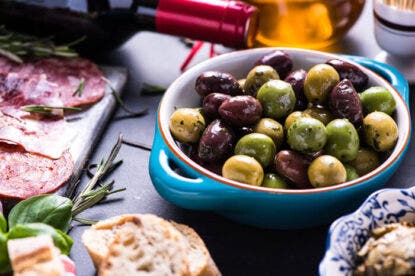It’s a fact of life: Competition is ever more intense, and a producer gains an advantage if he can use English to communicate and market his wine.
My friends, you can relax. The wine world speaks English now. Even in Europe, more and more producers communicate in English. They might prefer to speak French, Spanish, Italian, German, Portuguese, but their English is fluent, and the message gets across.
Once upon a time, to communicate to even a major producer in the Loire, Burgundy or Tuscany, the local language was essential. So what happened? The generation that saw the changeover to modern (i.e. careful and hygienic) winemaking techniques is, increasingly, in charge today. These men and women have often studied abroad, know their way around the world and understand not only wine production, but wine marketing as well.
One of the most famous wine courses in the world is based in Adelaide, Australia. It’s a wine marketing course. It teaches not only wine production and how to run a winery, but also how to sell the wine once it is produced (note that Australians have been phenomenally successful in promoting their wines around the world). It has become the model for other courses—there is one in Toulouse, France, another in Bordeaux. Some of these marketing classes are in English.
As a consequence of courses such as these, one of the important things that the new generation understands is that it no longer works to make fabulous wines and then sit back and wait for the world to come knocking. Producers have to get out, get on a plane, go and relate to their importer, even—shock, horror—talk to consumers. (Seem unfair? That is still a latent attitude you find among a few of the really snobby Bordeaux chateau owners.) To do that, you need English.
It’s not only the producers themselves who speak English. So do their brochures, their Web sites and their back labels. The vast majority of wineries in Europe, and not just the biggest, now have Web sites, just as their wines have back labels: it’s all part of the marketing.
So what does this mean for the wine drinker? It means that wine is more accessible. It’s possible, and easy, to learn more about a wine, and about a winery. It’s possible to talk to a producer, it’s possible to arrange a visit to a European winery and expect to find someone who speaks English there to welcome you.
This is all good. Maybe some of the ancient impenetrable mystique has disappeared as a consequence, but frankly I don’t miss that, and neither will you. The logic, after all, is obvious: If a producer makes wine, he or she needs to sell that wine in a world where competition is ever more intense. And if the producer can sell in English, his world just got so much bigger.
I don’t think the widespread use of English is itself a danger to the individuality of the wines being crafted by Old World winemakers. The fact that the producer of Bodega X in Rioja or Château Y in Bordeaux speaks English doesn’t change the wine. (It may, in fact, be one signal that the producer is making decent, clean wine.) The land, the grapes and the tradition won’t have changed. Admittedly, there was a time when some Old World wines tasted as if they were pretending to be New World in origin. That trend is waning. Increasingly, producers are traveling and studying other regions; the best return to their wineries more determined than ever to keep and develop their own identities. What this slow, steady adoption of English means is that we can find out about their wines more easily.
Is pride of craft giving way to the urgency of sale? Maybe with some brands, but I have not noticed this with wines that have a proper sense of place. It’s important to remember that it’s always been necessary to sell wine.
The use of English is good for European wine in general. It puts it on an equal level with American or Australian wine as far as consumers are concerned. There is no language barrier to interfere with understanding and experiencing the wine fully. This new generation that can talk to us in the language of our currency is keen to explain, and to persuade us to drink European wine.
While growers in the south of France continue to burn wineries, destroy tanks of wine and generally protest the facts of wine life in the 21st century, there are producers in the same villages who can sell their wine because they can market. This is nothing new. They are doing what their cousins in Champagne have been doing successfully for decades. What is new is how marketing has become essential at all price levels and wine regions.
This is a reflection of how wine has changed. It is no longer a purely agricultural product. It now has what the economists call “added value” through its image. And if that image is portrayed in English, then the next step-the sale-is much more likely to happen.
Have an opinion or question? Email us.
Published: February 1, 2007














